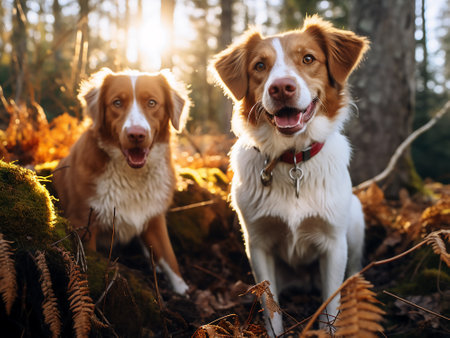Introduction to Exotic Pet Ownership in the UK
Britain’s fascination with exotic pets is a testament to its rich history of animal appreciation and its evolving sense of curiosity about the natural world. From vibrant reptiles and colourful parrots to unusual mammals like sugar gliders and meerkats, the variety of exotic animals kept in British homes has grown remarkably diverse over recent decades. This diversity not only reflects globalisation but also highlights shifting societal attitudes towards animal companionship. However, alongside this growing popularity come unique ethical and welfare considerations that are deeply rooted in the UK’s cultural context.
Popularity and Diversity of Exotic Pets in Britain
| Type of Exotic Pet | Examples | Popularity (Est. Households) |
|---|---|---|
| Reptiles | Snakes, Geckos, Tortoises | ~400,000 |
| Birds | Parrots, Cockatiels, Lovebirds | ~300,000 |
| Mammals | Sugar Gliders, Hedgehogs, Meerkats | ~150,000 |
This increasing interest in exotic pets is driven by a desire for unique companionship and an appreciation for biodiversity. Yet, it brings with it a responsibility to understand the specific needs of each species—needs which often differ significantly from those of traditional pets such as cats or dogs.
Ethical and Welfare Considerations Unique to the UK
The UK places a strong emphasis on animal welfare, reflected in both legislation and public sentiment. Owners are expected not just to provide basic care but to ensure that their animals can express natural behaviours within an appropriate environment. The ethical debate surrounding exotic pet ownership often centres on whether these complex needs can truly be met in a domestic setting. Issues such as sourcing (wild-caught vs. captive-bred), risk of invasive species, and potential threats to native wildlife are particularly pertinent in Britain’s tightly regulated landscape.
A Culture of Compassionate Responsibility
British culture values compassion and responsible stewardship when it comes to animals. This means that prospective exotic pet owners are called upon to carefully consider not only legal requirements but also the broader implications for animal welfare and conservation. As we explore the legal landscape in greater detail throughout this guide, it is vital to keep these cultural values at the forefront, ensuring that our choices reflect both our curiosity and our conscience.
Key UK Laws and Regulations Governing Exotic Pets
When considering the responsibilities of keeping an exotic pet in the United Kingdom, it is crucial to understand the framework of laws designed to safeguard both animals and the public. The UK has implemented a series of legislative measures to ensure that exotic species are cared for appropriately and that the risks associated with their ownership are minimised. Below is a summary of the principal legislation every current or prospective exotic pet owner should be aware of:
Principal Legislation Affecting Exotic Pet Ownership
| Legislation | Year | Main Provisions |
|---|---|---|
| Dangerous Wild Animals Act | 1976 | Requires private individuals to obtain a licence from their local council if they wish to keep certain species deemed dangerous. The Act sets standards for accommodation, safety, and welfare. |
| Animal Welfare Act | 2006 | Makes it a legal requirement for all pet owners to provide for the basic welfare needs of their animals. This includes adequate food, water, shelter, veterinary care, and the ability to express normal behaviour. |
| Wildlife and Countryside Act | 1981 | Regulates the release of non-native species into the wild and protects native wildlife. It prohibits certain activities related to protected species. |
| CITES (Control of Trade in Endangered Species) Regulations | Various (UK implementation) | Enforces international agreements restricting trade in endangered species. Importing, exporting, or selling certain exotic pets may require special permits. |
| PET Travel Scheme (PETS) | Ongoing | Outlines rules for bringing pets into Great Britain from abroad, including specific requirements for exotic animals. |
The Dangerous Wild Animals Act 1976
This Act is particularly significant for those wishing to keep animals such as big cats, primates, venomous snakes, or other creatures considered potentially hazardous. Local councils issue licences subject to strict inspection regimes, ensuring public safety and animal welfare are prioritised. Breaching this law can result in heavy fines or confiscation of the animal.
The Animal Welfare Act 2006
This comprehensive piece of legislation makes it an offence not only to cause unnecessary suffering but also to fail in providing for an animal’s fundamental needs. The Act applies equally to exotic species, reinforcing that owning such pets is a serious commitment requiring specialist knowledge and care.
Other Relevant Statutory Instruments and Local By-laws
In addition to national laws, various statutory instruments and local council by-laws may impact exotic pet ownership. These might include restrictions on breeding, transport, or display of certain species. It is always advisable to check with your local authority before acquiring any unusual animal companion.

3. Licensing and Registration Requirements
For those considering bringing an exotic pet into their home, navigating the licensing and registration requirements in the UK is an essential step—one that reflects both a commitment to animal welfare and public safety. The process can seem daunting, but it serves as a safeguard for animals who cannot speak for themselves, while also protecting local communities from potential risks associated with non-native species.
The Role of Local Councils
Local councils across England, Scotland, Wales, and Northern Ireland are entrusted with administering exotic pet licences under the Dangerous Wild Animals Act 1976 (as amended). These authorities assess each application on its own merits, taking into account the species involved, proposed housing conditions, and the applicant’s knowledge and preparedness. Councils are also responsible for conducting periodic inspections to ensure ongoing compliance with both national legislation and local bylaws.
Application Process Overview
The steps for obtaining a licence generally include:
- Submission of Application: Prospective owners must submit a detailed application to their local council, specifying the species they wish to keep, along with plans for housing, diet, enrichment, and veterinary care.
- Inspection: A qualified inspector—often a vet with experience in exotics—will visit the premises to verify that accommodation meets welfare standards.
- Assessment of Suitability: Councils will consider the applicant’s competence and resources to care for the animal responsibly.
- Payment of Fees: Application and inspection fees vary by locality and species; these cover administrative costs and support ongoing monitoring efforts.
Typical Licensing Requirements Table
| Requirement | Description |
|---|---|
| Detailed Application | Species details, husbandry plans, emergency procedures |
| Premises Inspection | Assessment of enclosure safety, hygiene, escape prevention |
| Insurance Proof | Public liability insurance covering potential risks |
| Renewal Interval | Usually annual; subject to review upon expiration or change in circumstances |
The Impact on Prospective Owners
The licensing process is designed not as a deterrent but as a framework for responsible ownership. It encourages would-be keepers to reflect deeply on their capacity to meet the complex needs of exotic animals. While some may find the paperwork and inspections burdensome, many experienced carers view these measures as evidence of society’s growing respect for all creatures—especially those whose wild origins demand special understanding. In this way, licensing requirements serve not only as legal obligations but as moral touchstones for anyone wishing to share their life with extraordinary companions.
4. Importation, Trade, and Breeding Controls
The importation, sale, and breeding of exotic pets in the UK are strictly regulated to protect both animal welfare and native ecosystems. Understanding these controls is crucial for anyone considering acquiring or trading in exotic species.
Import Regulations
Exotic animals entering the UK are subject to a range of checks and requirements under both national law and international agreements. The Convention on International Trade in Endangered Species of Wild Fauna and Flora (CITES) plays a central role in regulating which species can be imported and under what conditions.
| Category | Requirement |
|---|---|
| CITES-listed species | Special permits needed; strict documentation for entry |
| Non-CITES species | Must comply with UK’s Animal Health regulations |
| Quarantine | Certain species may require quarantine upon arrival |
Trade Restrictions and Responsible Sourcing
The sale and purchase of exotic pets must adhere to the Dangerous Wild Animals Act 1976 and other relevant legislation. Licensed dealers are required to verify the legal status of animals before sale, ensuring they have been sourced ethically and legally. Buyers are encouraged to ask for proof of origin and all necessary paperwork before making a purchase.
Key Steps for Ethical Acquisition:
- Request CITES permits or equivalent documentation
- Confirm breeder or dealer licensing status
- Avoid purchasing wild-caught animals whenever possible
Breeding Controls
Breeding exotic animals in the UK is not only a matter of private enthusiasm but also one of public responsibility. Some species require a specific licence to breed, especially if they are endangered or present potential ecological risks. Local councils may impose additional restrictions depending on the animal’s category and risk factors.
The Role of CITES in the UK
CITES ensures that trade does not threaten the survival of endangered species by enforcing permit systems for import, export, and breeding activities. The UK government works closely with CITES to monitor compliance, regularly reviewing lists of protected species and updating guidance for keepers.
Navigating this landscape demands vigilance, compassion, and a steadfast commitment to responsible pet ownership. By adhering to these regulations, you contribute not only to the safety of your community but also to the global effort in wildlife conservation.
5. Welfare Standards and Responsible Ownership
Owning an exotic pet in the UK is not simply about meeting legal requirements; it is a profound responsibility that encompasses welfare standards, enrichment, and medical care. The Animal Welfare Act 2006 sets out clear expectations for all animal owners, but with exotics, these responsibilities are even more pronounced due to their specialised needs.
Understanding the Five Welfare Needs
The UK’s animal welfare legislation is grounded in the Five Welfare Needs, which serve as a guiding principle for responsible ownership. For exotic pets, these needs often translate into unique challenges and considerations:
| Welfare Need | Examples for Exotic Pets |
|---|---|
| A suitable environment | Custom enclosures replicating natural habitat, correct temperature, humidity, and lighting |
| A suitable diet | Species-appropriate nutrition, supplements, and safe food sources |
| The ability to exhibit normal behaviour patterns | Enrichment activities such as climbing branches for reptiles or social interaction for birds |
| Housing with, or apart from, other animals | Consideration of solitary vs. social species; safe introductions when necessary |
| Protection from pain, suffering, injury and disease | Access to specialist veterinary care and regular health checks |
Guidance on Care and Enrichment
Exotic pets often have complex behavioural and environmental needs. Owners must research the natural history of their chosen species and provide appropriate enrichment—such as varied perching for parrots or burrowing materials for reptiles—to prevent boredom and stress-related illnesses. Enrichment isn’t just a luxury; it’s a fundamental welfare requirement recognised by UK authorities.
Medical Responsibilities
Accessing qualified veterinary care is vital. Many standard vets may lack expertise in treating exotics, so it is essential to register with a practice familiar with your pet’s species. Regular check-ups, preventative treatments (like parasite control), and emergency planning are critical aspects of responsible ownership.
Your Role as a Guardian
The privilege of keeping an exotic pet in the UK comes with an ethical duty to prioritise their wellbeing every day. By adhering to best practices in animal welfare—and seeking guidance from reputable organisations such as the RSPCA or British Veterinary Zoological Society—you help ensure that your companion thrives in a safe, enriched environment.
6. Enforcement, Penalties, and Public Safety Concerns
The UK’s approach to exotic pet ownership is not just about setting rules—it’s about upholding animal welfare and safeguarding the wider community. When these laws are breached, the authorities step in decisively. Non-compliance with licensing requirements under the Dangerous Wild Animals Act 1976 or other relevant legislation can lead to a variety of penalties, ranging from fines and revocation of licences to criminal prosecution. In severe cases, authorities may confiscate animals to prevent harm.
Consequences of Non-Compliance
| Offence | Potential Penalty |
|---|---|
| Keeping an exotic pet without the correct licence | Fines up to £5,000 and/or up to six months’ imprisonment |
| Breach of licence conditions (e.g., inadequate housing) | Licence revocation, animal seizure, additional fines |
| Endangerment of public safety | Prosecution under public safety laws, possible custodial sentences |
Role of Authorities in Supporting Welfare and Safety
Council officers work alongside the RSPCA and local police to ensure compliance. Inspections may be unannounced, especially if there are reports or suspicions of maltreatment or danger. The priority is always twofold: protecting the animals themselves from neglect or cruelty, and ensuring that exotic species do not pose a risk to neighbours or the wider environment.
Recent High-Profile Case Studies
- The Big Cat in Kent (2022): An individual was prosecuted after keeping a serval cat without proper licensing. The animal was seized following concerns raised by neighbours regarding escape risks and inadequate fencing. The case highlighted how swift enforcement prevented potential injury both to the cat and local residents.
- The Reptile Hoarding Incident in Manchester (2023): Over thirty reptiles were found in poor conditions in a suburban flat. Not only did this result in fines and bans on future ownership for the keeper, but it also sparked renewed calls for stricter checks during licence renewals.
A Community Responsibility
The legal landscape makes clear that keeping exotic pets is not a private matter alone; it’s a shared social responsibility. By enforcing regulations robustly and responding promptly to public concerns, UK authorities strive to balance compassion for animals with protection for people—ensuring that communities remain safe while vulnerable creatures receive the care they deserve.
7. Resources for Support and Further Guidance
Owning an exotic pet in the UK is a responsibility that extends far beyond meeting legal requirements; it also involves finding the right support, guidance, and community. Fortunately, there are numerous reputable organisations, charities, and online networks ready to assist both prospective and current exotic pet keepers. Below is a curated table highlighting some of the most respected resources available:
| Organisation/Resource | Type of Support | Contact/Website |
|---|---|---|
| RSPCA (Royal Society for the Prevention of Cruelty to Animals) | Animal welfare advice, rescue services, up-to-date legal guidance | rspca.org.uk |
| BIAZA (British and Irish Association of Zoos and Aquariums) | Best practice guidelines, species-specific information | biaza.org.uk |
| The Blue Cross | Educational resources, animal rehoming, support for owners in crisis | bluecross.org.uk |
| The Reptile Welfare Group | Specialist advice on reptile care and legal issues | reptilewelfare.co.uk |
Online Communities and Forums
In addition to official organisations, several online forums and social media groups bring together experienced exotic pet owners across the UK. These spaces offer peer-to-peer support, practical tips, and a sense of belonging for those who may feel isolated in their responsibilities.
Finding Trustworthy Advice
When seeking information online or through community groups, always verify sources and cross-reference guidance with official organisations. Laws change frequently—especially relating to endangered species or newly regulated animals—so keeping abreast of updates from DEFRA (Department for Environment, Food & Rural Affairs) is essential.
A Compassionate Network for Every Owner
No one should feel alone on their journey as an exotic pet keeper. By reaching out to these networks and engaging with reputable charities, you not only ensure your animal’s wellbeing but also contribute to a culture of responsible ownership throughout the UK. Whether it’s practical advice during a health crisis or ongoing education about legislative changes, these resources are invaluable pillars supporting both you and your unique companion.


